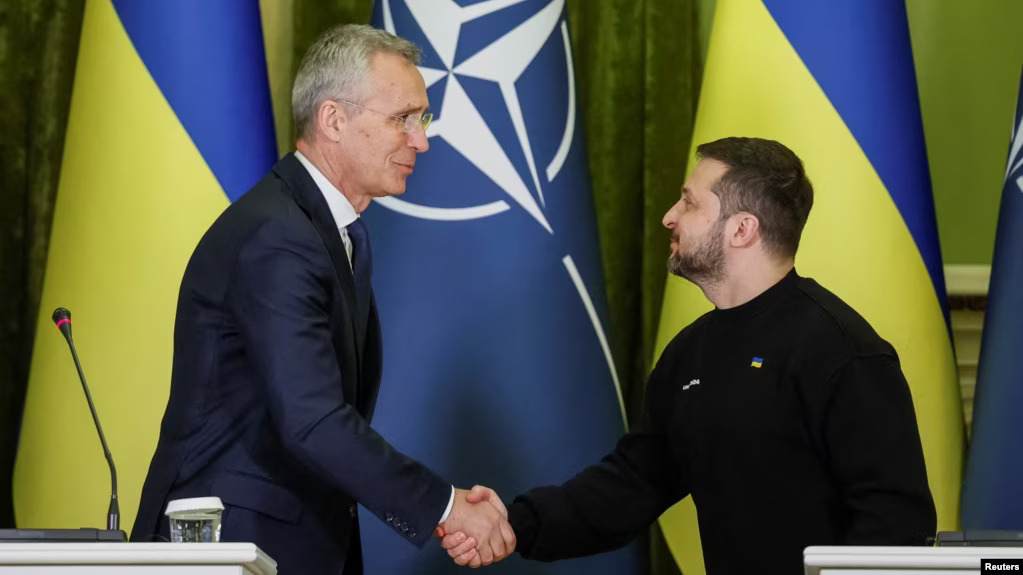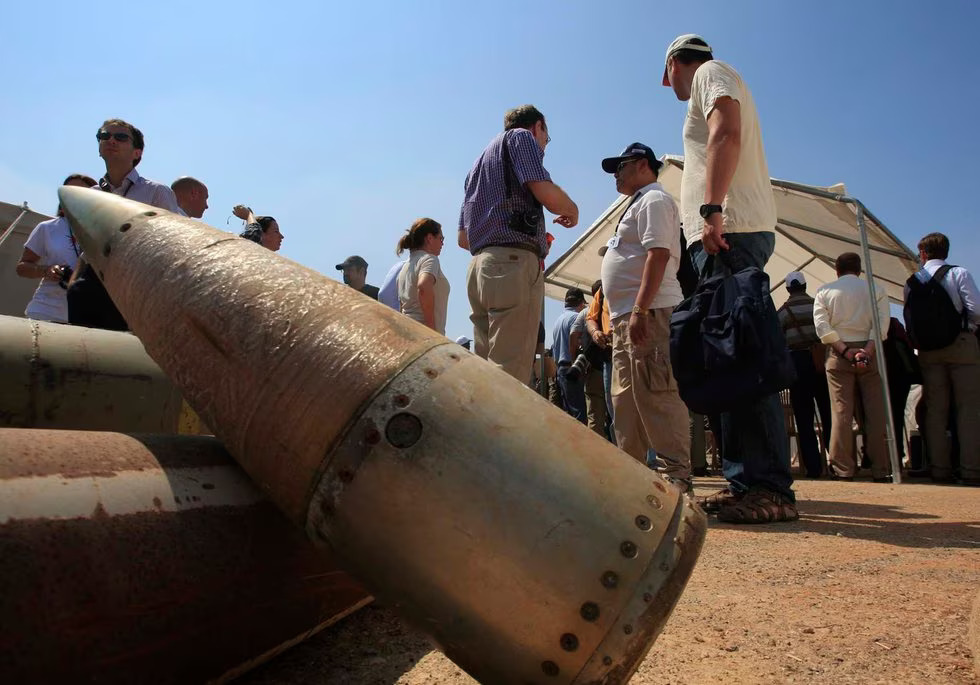The Biden administration has approved the provision of cluster munitions to Ukraine as part of a new military aid package worth up to $1.2 billion for the war effort against Russia, according to people familiar with the decision.
The decision comes despite widespread concerns that the controversial bombs can cause civilian casualties. The Pentagon will provide munitions that have a reduced “dud rate,” meaning there will be far fewer unexploded ones that can result in unintended civilian deaths.
Vladimir Putin, the president of Russia, has claimed that the U.S. and its allies are engaged in an escalating proxy war and has described the struggle as a “special military operation” to safeguard Russian security.
The cluster bombs “will deliver in a time frame that is relevant for the counteroffensive,” a Pentagon official told reporters.
Here’s What Cluster Munitions Do and Why Kyiv Wants it

Cluster munitions, first used during World War II, are a class of weapons including rockets, bombs, missiles and artillery projectiles that break apart midair and scatter smaller munitions over a large area.
More than 100 nations forbid the use of cluster munitions. The Convention on Cluster Munitions, which forbids the development, stockpiling, use, and transfer of weapons, is not ratified by Russia, Ukraine, or the United States.
They often disperse a vast number of smaller bomblets, each of which has the potential to kill everyone around. For decades after a fight is over, those that don’t go off constitute a threat.
According to Jake Sullivan, the national security adviser for the White House, “Ukraine has provided written assurances that it is going to use these in a very careful way” to reduce threats to civilians.
Though the choice about the cluster bombs was difficult, U.S. President Joe Biden insisted that Ukraine required them.
Both sides should stop deploying cluster bombs, according to Human Rights Watch, which has accused Ukrainian and Russian forces of employing the deadly weapons.

Anatoly Antonov, the ambassador of Russia to the United States, denounced the American delivery of lethal weapons to Ukraine.
“The cruelty and cynicism with which Washington has approached the issue of transferring lethal weapons to Kyiv is striking,” Antonov was quoted as saying by the TASS news agency on Friday.
“Now, through the fault of the US, there will be a risk for many years that innocent civilians will be blown up by submunitions that have failed.”
Since the beginning of the counteroffensive in early June, Ukraine claims to have recaptured some settlements in the south of the country but claims to lack the weaponry and air support to advance more quickly.
According to Colin Kahl, the U.S. assistant secretary of defense for policy, “We’re at the beginning of the middle. It’s too early to judge how the counteroffensive is going one way or the other.”
A day after negotiations in Bulgaria, Ukrainian President Volodymyr Zelenskiy traveled to the Czech Republic, Slovakia, and Turkey to rally support for NATO membership ahead of the alliance’s summit on July 11–12.
Following his discussion with Zelenskiy, Tayyip Erdogan, the president of Turkey, declared that Ukraine deserved membership in NATO and that Ankara will keep pursuing a peaceful resolution to the conflict.
Zelenskiy obtained support for Ukraine’s participation in NATO “as soon as the war is over” in Prague and “as soon as conditions allow” in Sofia.
Jens Stoltenberg, the secretary-general of the North Atlantic Treaty Organization, reiterated his belief that Ukraine would join.
At a press conference in Brussels, Stoltenberg said, “Our summit will send a clear message: NATO stands united, and Russia’s aggression will not pay.”
What will be presented to Ukraine at the conference in Vilnius, the capital of Lithuania, remains unknown. There is disagreement inside the alliance on how quickly Ukraine should join, and some members are leery of taking any action that could push NATO and Russia closer to war.
In a segment of his interview with CNN that aired on Friday, Biden emphasized the point. He stated, “I don’t think there is unanimity in NATO” over Ukraine’s current membership.
The specific details of what will be presented to Ukraine at the conference remain unknown, as some NATO members are cautious about escalating tensions with Russia.

Follow us on Twitter, Instagram, and Youtube to get the latest update!









